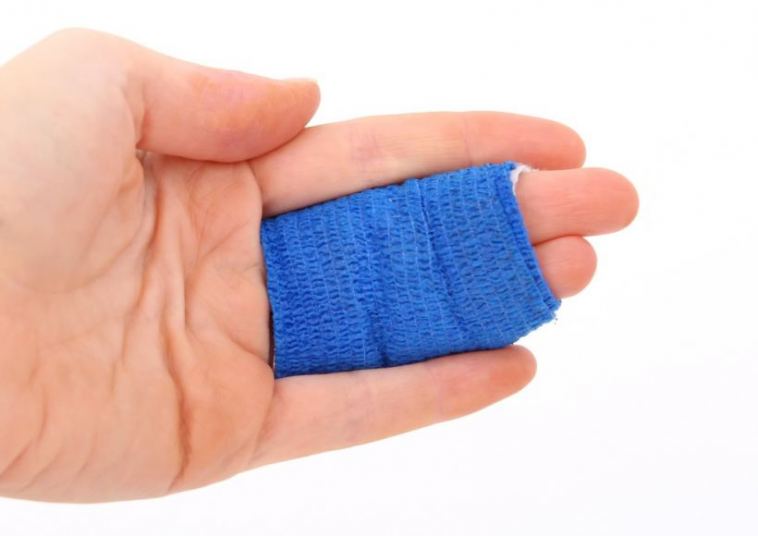- Like
- SHARE
- Digg
- Del
- Tumblr
- VKontakte
- Flattr
- Buffer
- Love This
- Save
- Odnoklassniki
- Meneame
- Blogger
- Amazon
- Yahoo Mail
- Gmail
- AOL
- Newsvine
- HackerNews
- Evernote
- MySpace
- Mail.ru
- Viadeo
- Line
- Comments
- Yummly
- SMS
- Viber
- Telegram
- JOIN
- Skype
- Facebook Messenger
- Kakao
- LiveJournal
- Yammer
- Edgar
- Fintel
- Mix
- Instapaper
- Copy Link
Introduction
An orthopedic injury is any injury that affects the musculoskeletal system. Some of the most common orthopedic injuries are the result of accidents and include:
- Breaks and Fractures
- Dislocations
- Knee injuries
- Rotator cuff injuries
For the most part, orthopedic injuries are painful and must be treated by a physician to heal properly and preserve the range of motion in the joints.
Common Orthopedic Injuries
Here are some details to help you better understand each type of orthopedic injury and some tips to ensure you speed the healing process by getting the proper treatment.
Breaks and Fractures
When you break a bone, you’ll likely know it before your doctor tells you. Much of the time, there will be an audible, sometimes sickening pop or crack, which is invariably accompanied by severe pain. When a bone breaks, you don’t rub some dirt on it and call your doctor in the morning; you call 911 immediately and wait for them to respond.
In the meantime, you should follow Mayo Clinic’s advice: try to stop any bleeding by applying pressure, immobilize the injured area, apply a splint if you know how, and apply ice to reduce swelling and help with the pain. Never try to realign a bone or push an exposed bone “back in.” Doing so could cause serious nerve damage and make the injury worse.
Dislocations
Dislocations are another type of serious and unpleasant orthopedic injury. Like breaks and fractures, dislocations are a big deal. You will need immediate medical assistance. In most cases, dislocations do not cause permanent damage, so never try to put a joint “back in place” by yourself. You could cause serious, long-term damage to the joints or ligaments if you do.
Knee Injuries
Along with those in the wrists, injuries to joints in the knees are some of the most painful simply due to how often humans use them. When you injure your knee, there’s a good chance the damage isn’t serious, so you don’t necessarily have to rush to your nearest emergency room and pay all the bills that go along with that.
Rather, you should keep your weight off the affected knee, apply ice for the swelling and closely monitor the injury. Redness, stiffness and swelling are common, and so are slight popping or crunching noises. You should see your doctor as soon as possible if your knee injury causes:
- Extreme swelling
- An inability to bear any weight or the feeling your knee might “give out” or buckle
- An obvious deformity in your leg
- An inability to fully extend the knee
Rotator Cuff Injuries
The rotator cuff refers to four tendons that attach the ribs and shoulder blades to the upper arm bones and allow the shoulders to rotate in their sockets. These tendons work within a tight space, so when the shoulder is pushed to or beyond its normal range of motion, the tendons can rub against ligaments or the acromion, the bony knob in the shoulder. This friction is called impingement.
There are several different types of rotator cuff injuries. You’ll need to see your doctor if you suspect a problem.
Treatment Cost of Orthopedic Injuries
Because orthopedic injuries vary so widely in type and severity, it’s difficult to generalize as to how much they cost to treat. A broken arm or leg, for example, costs about $2,500 to treat if the injury doesn’t require surgery. More severe orthopedic injuries, however, can cost much more, and orthopedic injuries may cause difficulties for a lifetime.
For this reason, it is important to find out where you stand from a legal perspective if you sustain an orthopedic injury. A personal injury attorney can review the details of your case and tell you what action you can take, and this is a service they may even provide for free.
Conclusion
Orthopedic injuries are some of the more difficult and painful injuries you can sustain and they almost always require one to get proper medical treatment.
If you’ve suffered from a break or fracture, dislocation, knee or rotator cuff injury, seek medical treatment right way, even if you aren’t 100% sure how much damage has been done.
You’ll likely be in a lot of pain depending on the complexity of your injury, but even if your pain is moderate, only a proper diagnosis by a professional will be able to determine what exactly has occurred and what needs to be done to remedy things.
Have you ever suffered from a orthopedic injury? What can you tell us about your experience? Let us know in the comments below…
About Theresa Duncan
Originally from Detroit, MI, Theresa has been offering health and fitness advice for the last 30 years while working as an engineer. She decided to turn her passion into a profession, and finds nothing more satisfying than helping others reach their health and fitness goals.

